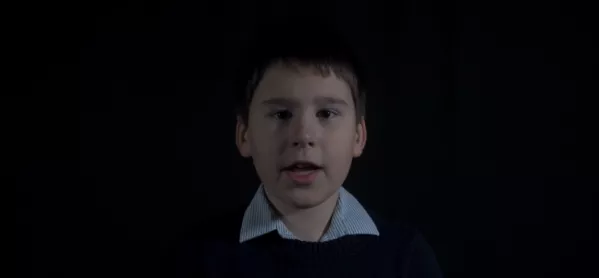WATCH: How monologues help my subject get through Covid

Could a whole cohort of budding Alan Bennetts be unleashed thanks to the Covid pandemic?
The experience of one school in Scotland would certainly suggest so: to keep drama alive at Belhaven Hill School in Dunbar, East Lothian, pupils are, like Bennett, becoming masters of the monologue.
Drama teacher Anna McGrath explains all:
We decided to create monologues - some of which can be viewed online - because we didn’t want to deprive the children of a performance experience during the Covid pandemic. So, rather than cancelling the traditional play for our nine- to 10-year-olds, the headmaster and I decided that we should create a new experience for them; so we chose monologues because they’re a singular exercise but you come together to perform as a group.
Having taught for LAMDA (London Academy of Music and Dramatic Art) previously and witnessed the benefits of solo performances, I thought it would be a great idea for each child to have their own moment in the spotlight.
The constraints imposed by the pandemic have thrown up creative challenges, but some of those have been beneficial as they have encouraged us to come up with new experiences.
Covid: Having an outdoor stage has been fantastic for our school
Coronavirus: Making drama after a crisis
The pandemic and the arts: The arts will fuel education’s Covid recovery
The themes for the monologues differed by age group. Among the nine-year-olds, we had 18 students performing with one student filming and taking photographs. The theme was Roald Dahl-inspired monologues, which meant that we had a plethora of famous characters, from those in Charlie and the Chocolate Factory through to Matilda.
How monologues build pupils’ confidence
For the 10-year-olds, we had 21 students performing a mixture of contemporary and classical monologues. One of the pupils filmed, photographed and provided technical ideas throughout the process.
I tried to pick monologues that the boys and girls would both enjoy and be challenged by. These ranged from CS Lewis classics to a boy talking about hating broccoli!
The children rose to the challenge magnificently. The important, initial hurdle was to learn the lines so that they could begin the process of developing character, voice and movement. They needed to learn how to inhabit a character for the duration of the scene. Each child has a single, individual experience.
The boys and girls enjoyed doing them and were great supports to one another during rehearsals. Their peers gave vital audience feedback by offering “what went well?” and “even better if…” suggestions. It was helpful, specific feedback.
Had we produced a traditional play, some of the children may only have had a chorus part. The advantage of monologues was that they provided a focus on the individual, which gave every child the opportunity to develop their core acting skills. Each boy and girl played a part with a monologue - that was really valuable.
Performing a monologue has helped teach the children to project their voice with good clarity, articulation and diction. It helps to develop public-speaking skills and the ability to change their vocal tone for effect.
Doing drama is so important in so many different ways: knowing how to project your voice; learning to force yourself to slow down your voice if you’re nervous.
Drama skills are immensely useful, and are most certainly transferable into many challenging areas of communication: learning to hold your own in a room full of people, debating, public speaking, job interviews and so on, even putting up your hand to ask questions in class. You don’t find all this in any other subject.
Drama builds children’s confidence and provides excellent preparation for senior school interviews, which these pupils will have in two or three years - and it helps to prepare them for their next schools.
Anna McGrath is a drama teacher and girls’ housemistress at Belhaven Hill School, a boarding and day prep school for six- to 13-year-olds in East Lothian, Scotland
You need a Tes subscription to read this article
Subscribe now to read this article and get other subscriber-only content:
- Unlimited access to all Tes magazine content
- Exclusive subscriber-only stories
- Award-winning email newsletters
Already a subscriber? Log in
You need a subscription to read this article
Subscribe now to read this article and get other subscriber-only content, including:
- Unlimited access to all Tes magazine content
- Exclusive subscriber-only stories
- Award-winning email newsletters